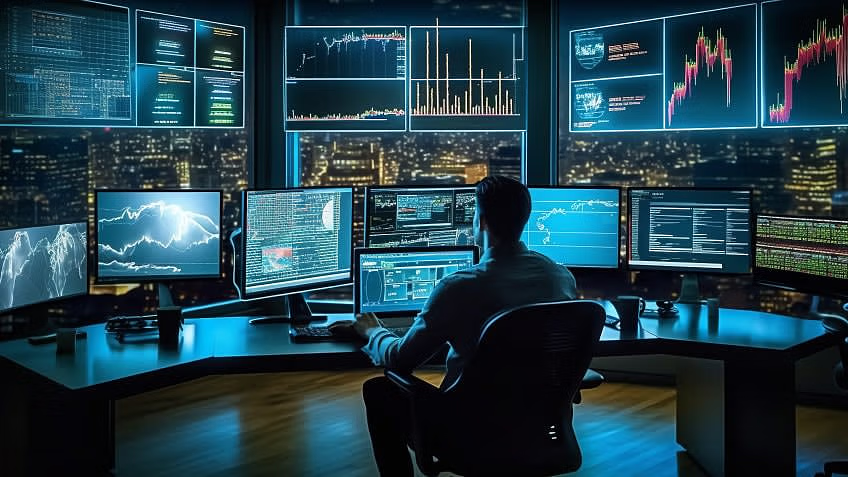The year 2025 has arrived with groundbreaking technological advancements that are reshaping the way people live, work, and connect with one another. Unlike in previous decades where technological growth followed a gradual path, the world is now experiencing exponential innovation that touches nearly every industry. From artificial intelligence and robotics to biotechnology and green energy, the boundaries of possibility are being pushed further than ever before. Technology has become more than just a tool for convenience; it is the backbone of society, powering economies, education, healthcare, communication, and global governance. The digital era of 2025 is marked by rapid transformation, constant disruption, and opportunities that are as vast as they are challenging.
Artificial intelligence has cemented its role as the centerpiece of technological progress. No longer limited to chatbots or basic automation, AI in 2025 is driving industries at scale. Healthcare has benefited tremendously, with AI diagnosing diseases faster than doctors in many cases and offering personalized treatment plans. In education, intelligent systems adapt to individual learning styles, making knowledge accessible to students regardless of location or economic background. In business, AI algorithms forecast market shifts, optimize supply chains, and enhance customer experiences in ways that were unimaginable just a few years ago. However, with its vast potential, AI also raises questions about ethics, job security, and the future of human creativity.
Another significant advancement shaping 2025 is the rise of robotics and automation. Robots are no longer confined to factories but are now common in homes, hospitals, and even public spaces. From caregiving robots assisting the elderly to automated delivery drones reducing traffic congestion, robotics is directly impacting everyday life. These developments promise efficiency and convenience but also spark debates about the displacement of human workers. Governments and businesses around the world are now grappling with how to balance innovation with job creation, ensuring that automation complements rather than replaces human talent.
Biotechnology is another frontier that has seen dramatic progress in 2025. Scientists have made strides in genetic engineering, regenerative medicine, and bioinformatics. Diseases that once seemed incurable are being treated with gene-editing tools such as CRISPR. Organ regeneration has moved from the laboratory to clinical practice, offering hope to millions of patients on transplant lists. Advances in biotechnology are also playing a key role in food production, with lab-grown meat and genetically engineered crops helping to address global food insecurity. While these breakthroughs are celebrated, they also raise ethical questions about genetic manipulation, human enhancement, and the long-term consequences of altering biological systems.
Green technology and renewable energy have taken center stage in 2025 as climate change remains one of the greatest global challenges. Solar panels, wind turbines, and energy storage systems have become more efficient and affordable, making clean energy accessible to developing nations. Electric vehicles now dominate city roads, supported by advanced charging infrastructure. Smart cities powered by renewable grids are emerging around the world, reducing carbon footprints while improving quality of life. Governments, corporations, and environmental groups are working together to accelerate the transition to sustainability. The urgency of climate change has driven technology to not only serve human needs but also safeguard the planet for future generations.
Communication technology continues to evolve, bringing the world closer together. The expansion of 6G networks has revolutionized connectivity, offering near-instantaneous data transfer and enabling advanced applications such as holographic communication and immersive virtual reality experiences. Remote work, already a global norm, has become more efficient and engaging with virtual offices and AI-powered collaboration tools. These advancements are blurring the boundaries between physical and digital spaces, creating new opportunities for innovation while raising concerns about digital privacy and dependency.
The role of cybersecurity in 2025 cannot be overstated. As digital reliance grows, so do the risks of cyberattacks, data breaches, and digital warfare. Cybersecurity has become a top priority for governments, corporations, and individuals alike. Sophisticated AI-driven defense systems are being developed to counter increasingly complex threats. Digital literacy is now considered an essential skill, empowering people to protect their personal information and navigate the digital world safely. In an interconnected age, trust and security form the foundation upon which technological progress rests.
Technology has also reshaped entertainment and culture. The rise of virtual reality and augmented reality has transformed gaming, cinema, and even social interactions. Immersive experiences allow fans to engage with content in ways that were once science fiction. Celebrities and influencers are using digital avatars to interact with fans across the globe, creating entirely new economies in virtual spaces. The blending of entertainment, culture, and technology illustrates how deeply integrated innovation has become in shaping human expression.
Education has seen one of the most profound transformations. Traditional classrooms are being replaced by hybrid and digital learning environments that cater to diverse needs. With AI tutors, virtual reality simulations, and personalized courses, students in remote villages now have the same access to quality education as those in developed cities. Lifelong learning has become the norm, with adults constantly reskilling to keep pace with evolving industries. This democratization of knowledge promises to reduce inequality while equipping societies for the challenges of the future.
Despite the many benefits, the rapid pace of technological advancement also brings challenges. Ethical dilemmas surrounding artificial intelligence, privacy, biotechnology, and automation remain unresolved. Inequality in access to technology threatens to widen gaps between rich and poor nations. There are growing concerns about mental health as people spend increasing amounts of time in digital environments. Policymakers, scientists, and communities are tasked with ensuring that innovation serves humanity rather than divides it.
FAQs
What role does AI play in 2025?
AI powers industries such as healthcare, business, and education, offering efficiency and personalized services, but it also raises ethical and employment-related concerns.
How is technology addressing climate change?
Renewable energy, electric vehicles, and smart cities are reducing carbon emissions while promoting sustainable growth worldwide.
What risks come with technological advancement?
Cybersecurity threats, ethical questions in biotechnology, and workforce disruptions due to automation are major risks in 2025.
Is access to technology equal across the globe?
While progress has been made, disparities remain, with some developing regions still struggling to keep pace with advanced economies.
What is the biggest challenge for the future of technology?
Ensuring that innovation benefits all of humanity equally while addressing ethical, environmental, and social concerns remains the greatest challenge.
Conclusion
The future of technology in 2025 is filled with promise and complexity. Innovation has become the defining characteristic of this era, driving advancements that improve health, education, communication, and sustainability. Yet, these benefits come with challenges that require collective effort to overcome. The way forward will demand collaboration between governments, businesses, and individuals to ensure that technology remains a force for good.
As humanity moves deeper into the digital age, the choices made today will determine whether the future of technology is one of inclusivity and progress or division and inequality. The story of 2025 is not just about machines and algorithms; it is about people, their values, and their vision for the world they wish to create.






